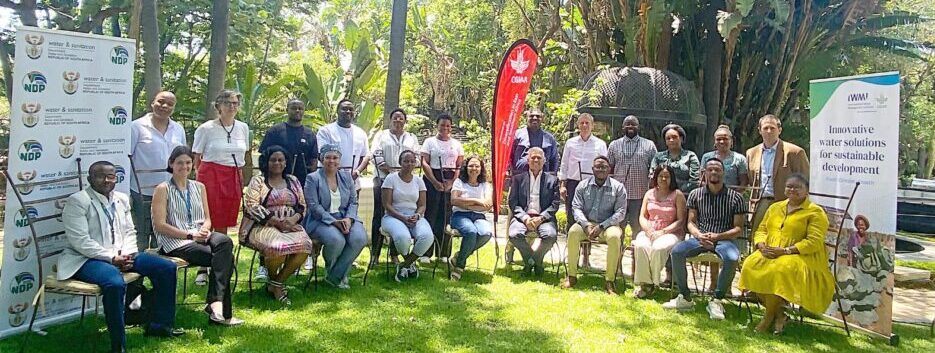
South Africa’s Department of Water and Sanitation (DWS), in collaboration with the International Water Management Institute (IWMI) led a consultation to contribute to the country’s revised Climate Change Strategy. The meeting of experts and stakeholders focused on the pivotal role of water in climate-resilient development pathways for water-scarce nations.
“According to the World Bank, water scarcity affects over 40% of the global population, with water-related disasters accounting for 70% of all deaths related to natural disasters. South Africa, among the 30 most water-stressed countries, faces increasing water stress exacerbated by population growth and climate variability. The World Resources Institute reports on South Africa’s critical water situation. To address these challenges, IWMI is working with the South African government to integrate water management strategies into climate policies. The Climate Change and Water Sector Consultation signified a crucial step in fostering resilience against climate change impacts,” said Dr Henry Roman, Country Representative, IWMI Southern Africa.
Speakers reiterated that the drive for water security calls for a collaborative response from government, NGOs, and the private sector. They agreed that combining efforts was essential to ensure sustainable water management, improve access, and innovate resilient solutions. This can drive impactful policies, fund crucial initiatives, and implement effective strategies to secure the world’s water future.
Spearheaded by Dr. Gabriel Lekalakala, Specialist Scientist – Directorate Climate Change Analysis at the Department of Water and Sanitation, the consultation delved into two key areas: water in Nationally Determined Contributions (NDCs) to place water at the heart of development pathways and drafting the Climate Change Status Quo and National Response Strategy.
“The Water and Sanitation Sector is faced with a wide range of challenges that are further exacerbated by climate change. This will have severe impacts on water security. The development of response plans such as the draft National Climate Change Response Strategy for the Water and Sanitation Sector together with collaborative and coordinated responses from the sector can contribute towards reducing the potential impacts. The strategy is a blueprint for the sector to use in response to climate change related impacts and requires all hands-on deck. Hence, the consultation is to afford the sector players an opportunity to contribute towards its robustness. There will be more consultation processes making use of all available platforms in the coming weeks. Its implementation process will involve awareness drives of the strategy to encourage greater uptake. We encourage all stakeholders to take part in these processes,” said Dr. Lekalakala.
Dr. Inga Jacobs-Mata, Director of Water, Growth and Inclusion at IWMI led discussions on a Climate Change Response Strategy for the Water and Sanitation Sector, as well as developing the NDC Capacity Scorecard. “Countries have developed NDCs but they have not adequately assessed their capability to implement the NDC. The capacity scorecard is developed to assist developing countries, in particular, to assess their capability and derive more pragmatic NDCs. This is how IWMI can assist countries in developing their NDCs for 2025,” noted Dr. Jacobs-Mata.
For more information please contact:
Phindiwe Nkosi
Communications and Knowledge Management Expert, IWMI
+27 72 618 4275
Wisane Mavasa
Spokesperson for the Department of Water and Sanitation
+27 60 561 8935

